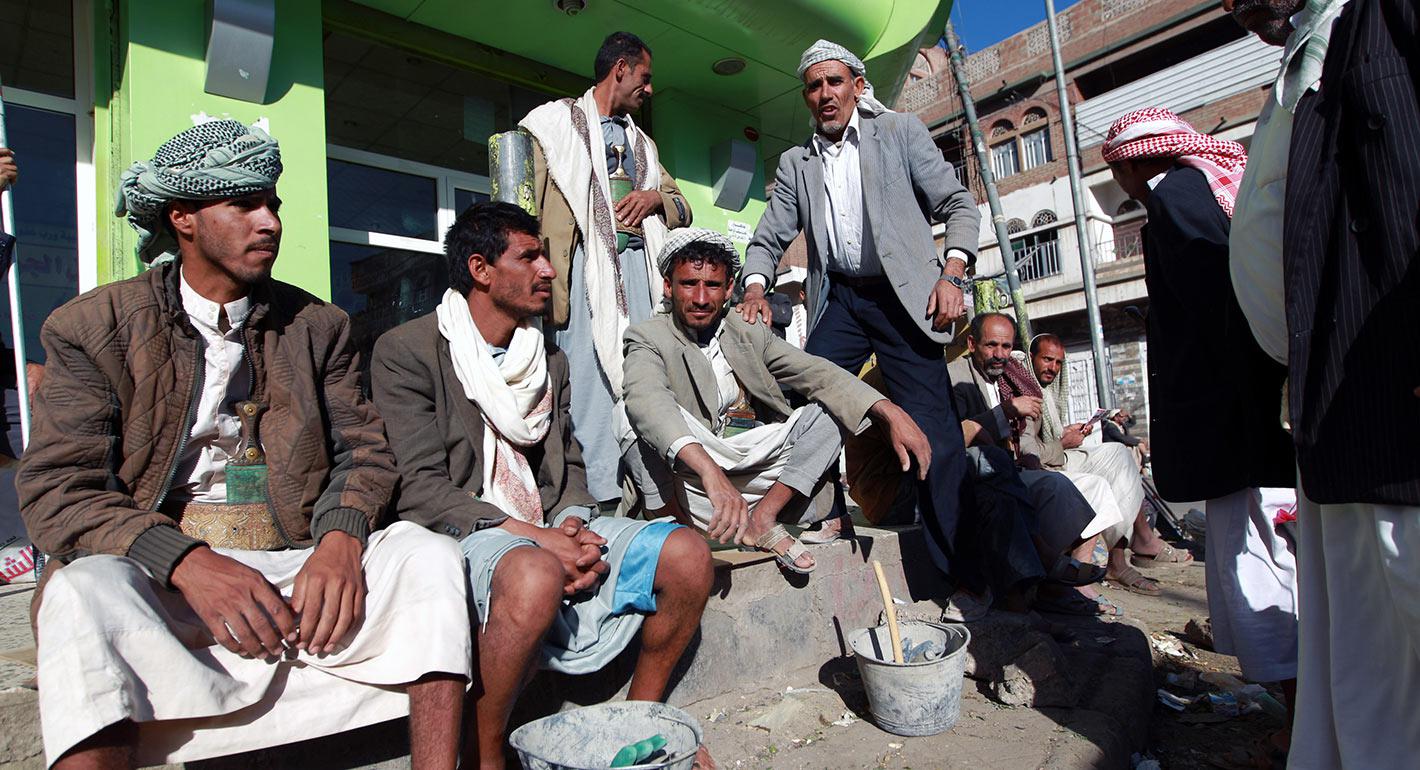In July 2021, Saudi Arabia announced new regulations prescribing the intended percentage of foreign workers in private sector establishments in the kingdom, capping Yemenis at only 25 percent. This came as a shock to the Yemeni community in the country, among whom a wave of discontent erupted last August. The decision is expected to have profound political, economic, and humanitarian effects on Yemenis living in Saudi Arabia, as well as their extended families back home.
The Saudi Vision 2030 framework announced by Crown Prince Mohammed bin Salman aims to reduce the unemployment rate among Saudis to 11 percent by the end of 2021, and to 7 percent by 2030. The Vision is a national program that propagates “job localization” or “Saudization,” a principle that entails limiting various professions exclusively to Saudi citizens and significantly increasing the monthly fees paid by migrant workers. Although this may seem like internal policy, the fact that it specifically targets 1.5 million Yemeni expatriates working in Saudi Arabia – the smallest community of migrant workers in the kingdom – calls into question the motives of the country that alleges its support for Yemenis in their current crisis.
Deepening Humanitarian Crisis
“Saudi authorities are effectively laying off and threatening to forcibly return hundreds, possibly thousands, of Yemeni professionals to an ongoing conflict and humanitarian crisis in Yemen,” said Human Rights Watch. Saudi Arabia justified this move by claiming its goal is to free up jobs for citizens in the south as part of its efforts to tackle the 11.7 percent unemployment rate. It was also driven by security considerations in southern areas near active warzones, where a Saudi-led coalition is fighting Yemen's Houthi group. Although the decision has been retracted in some academic and medical institutions, it will affect tens of thousands of Yemenis working in Saudi Arabia and will have serious implications on the future of peace in Yemen, as well as on humanitarian, military, security, economic, and political dynamics, including Saudi-Yemeni relations.
On a humanitarian level, the conflict in Yemen has already had a devastating effect on the country’s infrastructure and caused the internal displacement of more than 4 million Yemenis. If Saudi authorities persist with this new decision, thousands of Yemeni workers will be forced to return to a country plagued by an escalating humanitarian disaster, and many families will lose their livelihoods at a time when there are no alternatives. According to UN estimates, a widespread famine is imminent, and as the conflict enters its seventh year, nearly 21 million people, more than 66 percent of the total population of Yemen, are in dire need of humanitarian assistance and protection. Laying off Yemeni workers would exacerbate the ongoing catastrophe and increase the burden placed on the international community, the UN, and other international relief organizations to attempt to address the crisis that will inevitably spiral out of control.
On a political level, the decision puts the internationally recognized Yemeni government at a terrible disadvantage vis-à-vis its people. The government, currently headquartered in Riyadh, already faces existential challenges from both the Houthis and the Southern Transitional Council, with its only saving grace being its so-called “strategic relationship” with the kingdom. The fact that it is unable to protect the interests of its expats will profoundly damage its credibility and jeopardize the Saudi-Yemeni alliance, forcing war-weary Yemen into more chaos.
The security and military implications of the Saudi decision are also alarming. Yemeni workers, who are now returning to Yemen by the planeload, will be looking for an alternative source of income and are likely to be very attractive recruits for Houthi rebels and al-Qaeda, repeating a previous catastrophic scenario: in 2013, the Saudi government implemented a nationwide system to regulate foreign labor in the country which ultimately prompted large scale deportations of irregular workers, many of whom were Yemenis. The ensuing influx of Yemeni deportees from the kingdom put tremendous pressure on the Government of National Accord. To relieve this pressure, the Yemeni government called on the Saudi government to exclude Yemenis from the new regulations and warned Riyadh that the Houthi movement across the border will take advantage of the situation, which could ultimately prove detrimental to Saudi national security. However, Riyadh refused to alter its policy.
Yemen’s conflict erupted in 2014 when the Houthi movement overthrew the Government of National Accord, the latter of whom failed to address the economic repercussions of the catastrophe by supporting vulnerable returnees. The country was then plunged into a war that lasted for over six years and resulted in the death of over 233,000 people.
Remittances sent from Saudi Arabia constitute the largest source of foreign exchange in Yemen, providing a lifeline for millions of people in a country where the poverty rate is between 71 percent and 78 percent. Reduced remittances will markedly affect Yemen’s deteriorating economy and the already suffering national currency: the Yemeni riyal recently fell to 1,500 YER per 1 USD, rendering it impossible for ordinary citizens to afford basic necessities like food.
Helping Yemen out of its current crisis should be a priority for its closest neighbor, Saudi Arabia, and for the international community as a whole. Rebuilding what has been destroyed by the war and providing economic stability are the only ways to aid the war-torn country in its recovery and creation of a strong political system. Expelling Yemeni workers from Saudi Arabia will do nothing to support peace efforts but rather will certainly impede international commitment to end the war. It will also likely will stress the government further – and ultimately diminish what little is left of Yemen's civil peace and social fabric.
Adel Dashela is a Yemeni writer and scholar with a PhD in English literature. Follow him on Twitter @AdelDashela.






